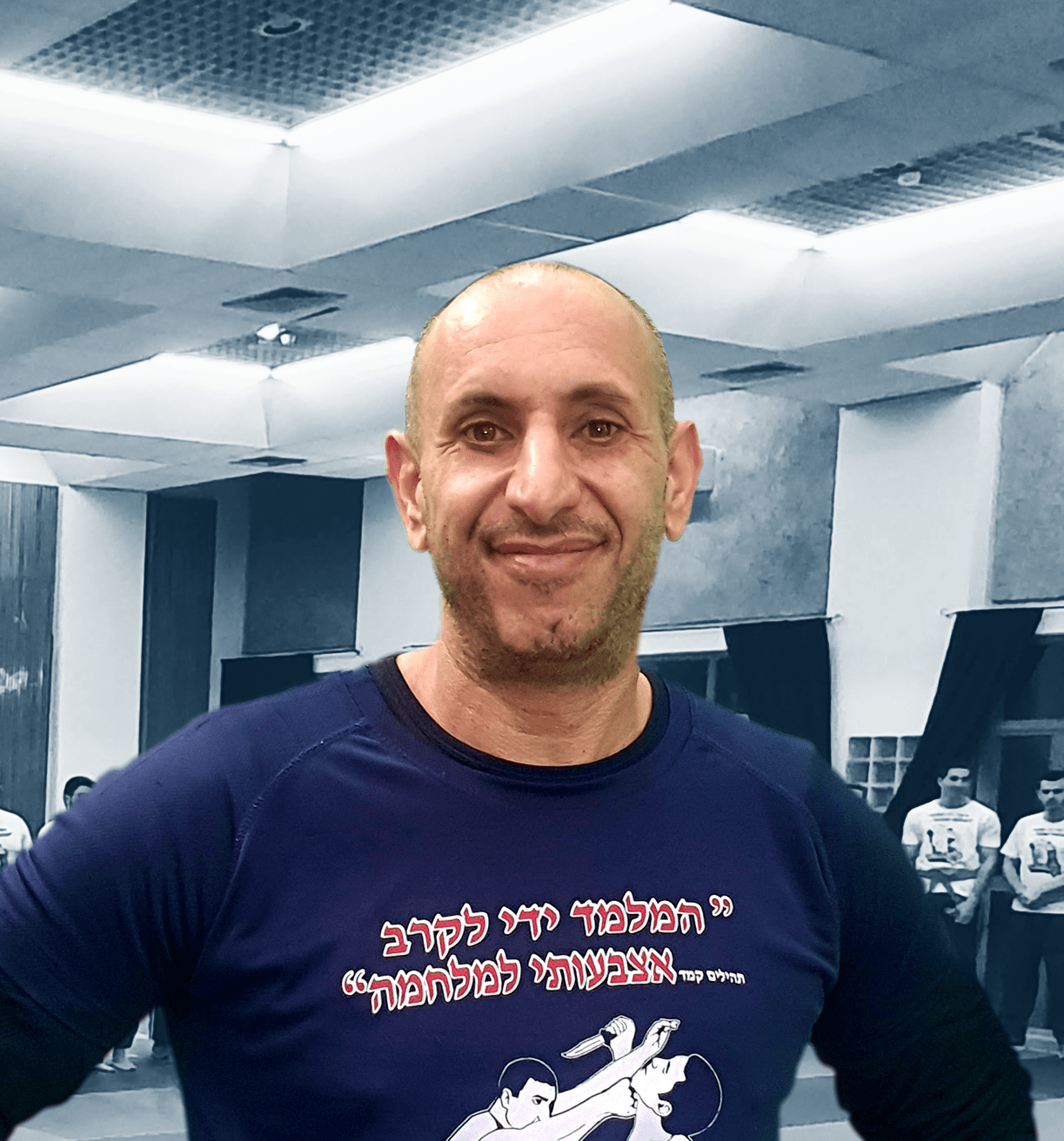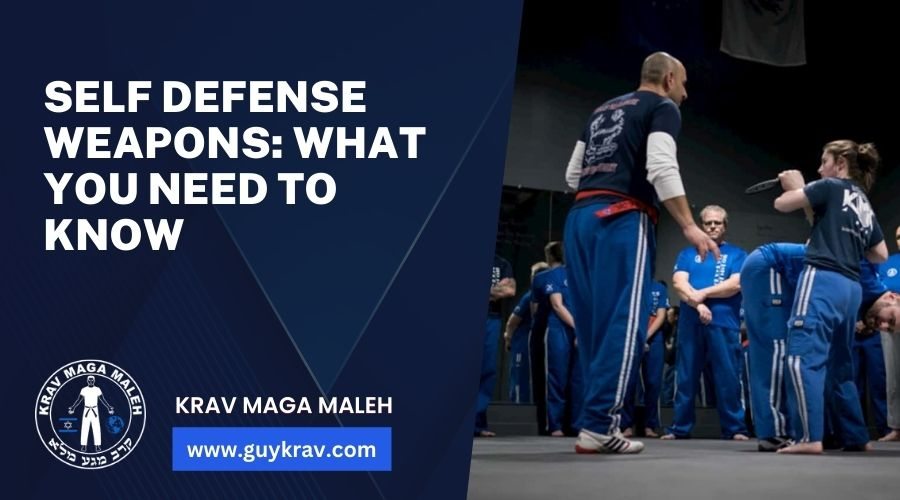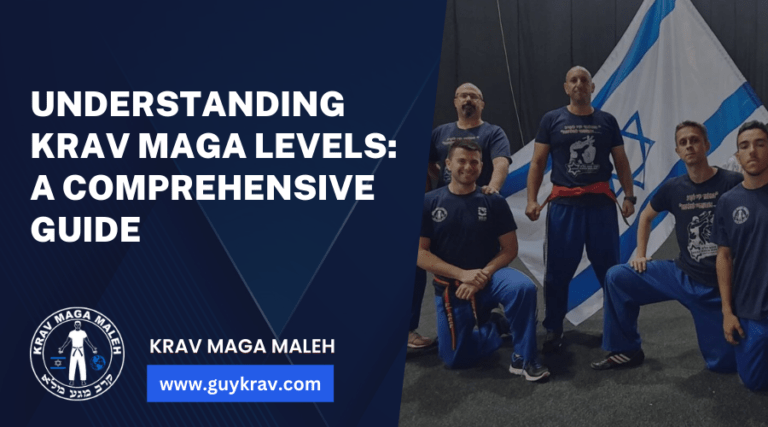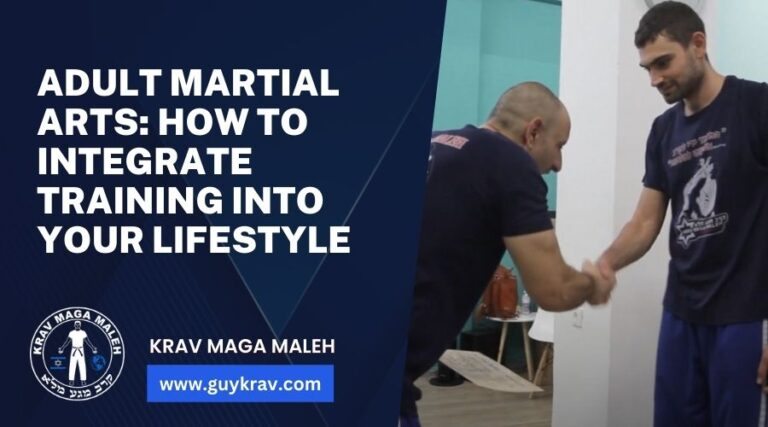Self-defense is an essential skill that everyone should possess in today’s unpredictable world. Having the knowledge and ability to protect oneself can provide a sense of security and confidence. While physical self-defense techniques are valuable, having the right self-defense weapon can significantly enhance your personal safety. In this article, we will explore various aspects of self-defense weapons, including their types, factors to consider when choosing one, the best options for different situations, and the importance of proper training with Krav Maga Maleh. Let’s delve into the world of self-defense weapons and equip ourselves with the knowledge that can potentially save lives.
Types of Self-Defense Weapons
Self-defense weapons come in a variety of types, each with its own advantages and limitations. Some commonly used self-defense weapons include:
- Pepper Spray: Pepper spray is a non-lethal aerosol spray that contains chemicals derived from chili peppers. It can temporarily incapacitate an attacker by causing irritation to the eyes, throat, and respiratory system.
- Stun Gun: A stun gun is an electrical self-defense device that delivers an electric shock to an attacker upon contact. It disrupts the body’s muscular system, temporarily immobilizing the person and allowing the victim to escape.
- Taser: Similar to a stun gun, a Taser is a conducted electrical weapon that shoots electric probes connected to the device. When the probes make contact with an attacker, it delivers an electric shock, incapacitating them.
- Personal Alarm: A personal alarm is a small device that emits a loud noise when activated. It is used to attract attention and deter potential attackers by drawing attention to the situation.
- Tactical Flashlight: A tactical flashlight is a flashlight designed for self-defense purposes. It is typically brighter and more durable than regular flashlights and can be used to disorient an attacker temporarily.
- Kubotan: A kubotan is a small stick-like self-defense tool usually made of metal or hard plastic. It is held in the hand and can be used for striking pressure points, joint locks, or as an improvised weapon.
- Expandable Baton: An expandable baton, also known as a telescopic baton, is a collapsible self-defense tool commonly used by law enforcement. It extends to a longer length when needed and can be used for striking or blocking attacks.
- Personal Protection Alarm: A personal protection alarm is a small device that can be carried on a keychain or in a pocket. When activated, it emits a loud siren or alarm sound to attract attention and scare off potential attackers.
- Tactical Pen: A tactical pen is a sturdy pen made of durable materials such as aluminum or stainless steel. It serves as a functional writing instrument but can also be used as a self-defense tool for striking or creating pressure on vulnerable areas.
- Self-Defense Keychain: A self-defense keychain is a small, compact tool designed to be attached to a keychain. It may include features like a sharp point, finger grooves, or a striking surface, providing options for self-defense in emergency situations.
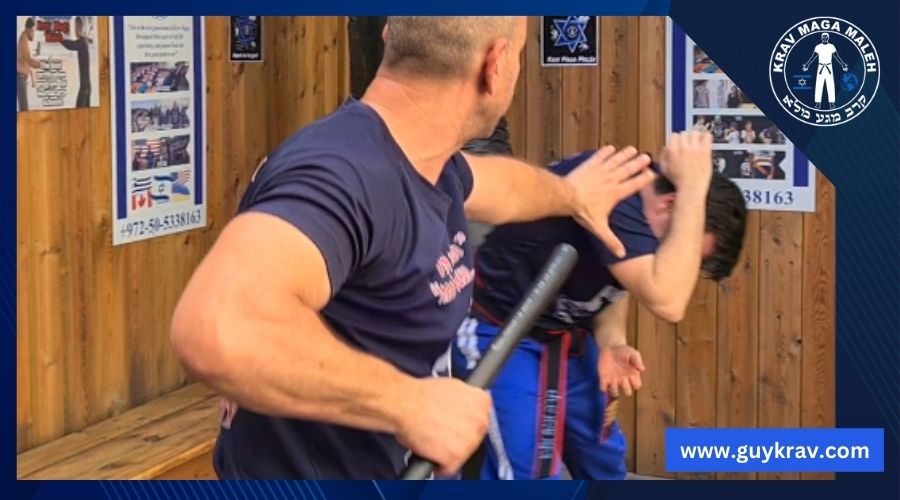
Factors to Consider when Choosing a Self-Defense Weapon
When selecting a self-defense weapon, it’s essential to consider certain factors to ensure it aligns with your needs and capabilities. Here are a few key considerations:
Legality: Familiarize yourself with local laws and regulations regarding self-defense weapons. Some areas have restrictions on certain types of weapons, such as firearms or stun guns. Ensure you choose a weapon that is legal and permissible in your jurisdiction.
Personal Comfort and Confidence: Select a self-defense weapon that you feel comfortable using. Consider your physical abilities, grip strength, and any limitations you might have. Confidence in handling the weapon is crucial during high-stress situations.
Training Requirements: Some self-defense weapons require training to use effectively and safely. Firearms, for example, demand proper handling skills and knowledge of safety protocols. Factor in the time and effort required to acquire and maintain the necessary training.
Portability and Accessibility: Choose a self-defense weapon that is easy to carry and access when needed. It should fit your lifestyle and daily routine, allowing you to have it readily available without causing inconvenience or hindrance.
Best Self Defense Weapons for Different Situations
The effectiveness of self-defense weapons can vary depending on the situation. Here are some recommendations for different scenarios:
Home Defense: For protecting your home, consider options such as a reliable firearm, a sturdy baseball bat, or a tactical flashlight with strobe capabilities.
Personal Safety on the Go: When you’re out and about, compact and easily concealable self-defense weapons are ideal. Pepper sprays, personal alarms, or a small stun gun can provide you with a sense of security and confidence while navigating public spaces.
Jogging or Running: Running or jogging in secluded areas can leave you vulnerable to potential attacks. Carry a personal alarm or a self-defense keychain that incorporates pepper spray. These compact and portable options can be easily carried during your exercise routine.
Traveling: When traveling, it’s crucial to be aware of the self-defense laws in your destination. Opt for non-lethal options like a travel-size pepper spray or a personal alarm that complies with local regulations. Remember to familiarize yourself with the weapon’s allowed carry-on status when flying.
Workplace Safety: In work environments where personal safety might be a concern, consider discreet self-defense options. A tactical pen or a compact stun gun disguised as a flashlight can provide you with a means of protection without drawing attention.
Learn about Proper Use and Training for Self Defense Weapons with Krav Maga Maleh
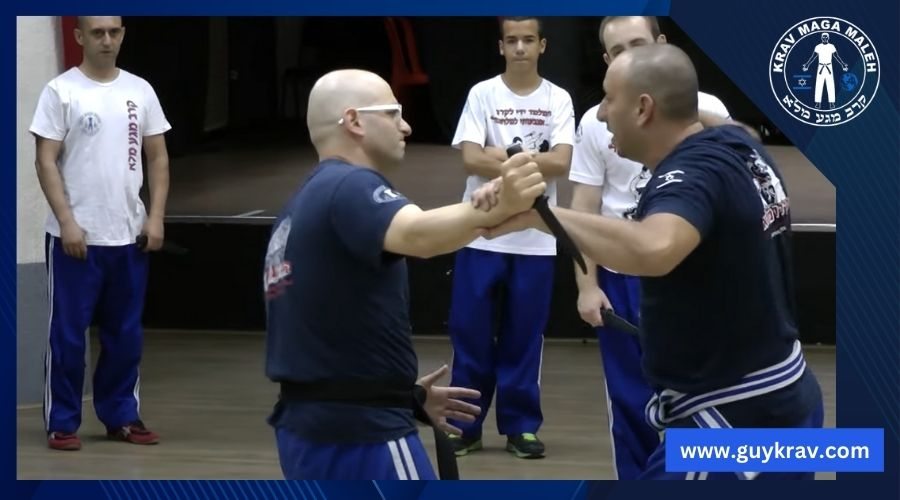
Self-defense weapons can serve as valuable tools for personal protection. Understanding the different types of self-defense weapons, considering important factors while choosing one, and acquiring proper training are essential steps toward enhancing your personal safety. Remember, self-defense weapons should be used responsibly and in accordance with local laws. Equip yourself with knowledge, choose the right self-defense weapon for your needs, and consider training with Krav Maga Maleh to develop the skills necessary to defend yourself effectively. Empower yourself with the confidence and ability to stay safe in an unpredictable world.
While having a self-defense weapon can be beneficial, it is essential to understand that the weapon itself is only a tool. Proper training in self-defense techniques and the responsible use of the weapon is paramount. Krav Maga Maleh, a renowned self-defense system, offers comprehensive training programs that cover both physical techniques and the effective use of self-defense weapons.
Krav Maga Maleh combines practical self-defense techniques derived from martial arts and real-world scenarios. Our training includes instruction on weapon handling, situational awareness, and decision-making skills. By joining our self-defense classes, you can develop the necessary skills and mindset to effectively defend yourself using a self-defense weapon.
FAQs
Are self-defense weapons legal everywhere?
No, the legality of self-defense weapons varies from one jurisdiction to another. It is crucial to familiarize yourself with the laws and regulations specific to your area.
Do self-defense weapons guarantee my safety?
Self-defense weapons can provide an additional layer of protection, but they do not guarantee safety. Proper training, situational awareness, and making smart choices are equally important.
Can I use self-defense weapons without any training?
While some self-defense weapons are intuitive to use, training is highly recommended for optimal effectiveness and safe handling. Training enhances your confidence and ensures you use the weapon correctly in high-stress situations.
How often should I practice with my self-defense weapon?
Regular practice is crucial to maintain familiarity and proficiency with your self-defense weapon. Set aside time for training sessions and follow any recommended maintenance routines.


